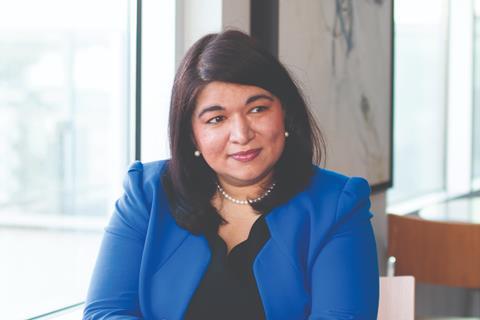Ruth Malhotra was working as Ravi Zacharias’ spokesperson when abuse allegations were first made against the apologist. The revelations began a journey that would take her from spokesperson to whistleblower to advocate

“I do all the wrong things – and she makes them look right,” Ravi Zacharias said with a grin. The “she” was Ruth Malhotra who worked with Ravi as his spokesperson.
The year was 2018. The audience was RZIM staff gathered in the ministry’s global headquarters. The “she” was me.
Zacharias had just come through a brief but intense firestorm of media coverage surrounding allegations of sexual abuse as well as falsification of academic credentials. He had survived that season with his ministry and reputation mostly intact – or so he thought.
Many of us thought so, too – even as we still tried in vain to get answers and bring accountability.
I was Zacharias’ spokesperson and managed Public Relations for RZIM from 2013-2021. When the scandals intensified, I was at the helm of our crisis communications strategy – working with an internal task force and external consultants to contain the revelations that threatened to deal a fatal blow to the ministry.
In 2021 I went public about my experience at RZIM. There were many layers of complicity and corruption, and I felt compelled to speak out.
As I reflect on my unlikely journey at RZIM, which took me from spokesperson to whistleblower to advocate, perhaps the most significant lesson I’ve learned is that it takes a system to conceal and enable abuse and corruption. While many simply want to dismiss Zacharias as “a bad apple” who “fooled everyone”, I’ve come to understand that his pattern of harmful behaviour did not – and could not – happen in a vacuum.
I worked with Ravi Zacharias for eight years. His abuse didn’t happen in a vacuum
Even in the two years since I went public, new investigations have brought further revelations of the toxic environment at RZIM, affirming what I experienced firsthand: that RZIM’s senior leadership and board misused ministry funds and repeatedly misled the public; that staff who raised concerns during the scandals were ignored or mistreated; and that various types of abuse and deception were representative of RZIM’s organisational culture. It takes a system, and for eight years I, too, was part of that system even as I was a victim of it – something I am still untangling in my own healing journey.
Psychologist Dr Diane Langberg says: “Some of us have faced the power of systems that name God’s name yet look nothing like him…The system seems to easily sweep others into participation in its corrupt ways. How much easier it is to keep quiet or be swept along, especially when the system has been about good work done in the name of God.”
In our workplaces, our churches, and other systems and circles of interaction, at some point we will be confronted with acts of injustice and deceit – situations where those in power misuse their authority and influence to exploit the vulnerable, even in the name of God. We must each make a choice: Will we keep quiet and protect the system, or will we turn the lights on? Will we dismiss the experiences of the marginalised, or will we listen to those who are often not seen or heard or believed? Will we spin a message to make wrong things look right – or will we speak truth with clarity and grace?
I wish I’d asked myself these questions earlier. I hope you’ll ask yourself these questions before it’s too late.
For more on this story, read our feature ’Ravi Zacharias’ sins of sexual abuse went undetected for years. Here are the lessons the Church needs to learn’


































2 Readers' comments